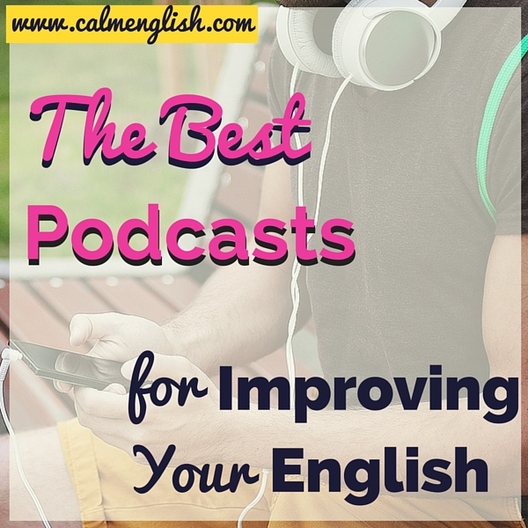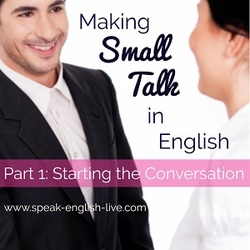|
Listening and studying with podcasts is one of the best things you can do to improve your English. In my last post on finding time in your busy life to study English, many of the featured language teachers recommended using podcasts. If you talk to successful English speakers, they will invariably say they listen to podcasts. A lot of podcasts! But which podcasts should you use if you want to improve your speaking, listening, grammar and vocabulary? In this article, I’ll show you:
Read on to learn which podcasts you should use to improve your English:
4 Comments
Are You Super Busy? Here's How to Find Time To Study English (Even When You're a Busy Professional)9/6/2016
Time.
We all have the same amount, but sometimes it feels like there is just not enough time! If you're anything like me, you spend hours reading articles about time management and productivity. It's a big problem - wanting to do SO MUCH and not having enough time - that professionals all over the world share. We all also know that it's going to take time to learn to really speak another language. But how can we find time and use our time correctly as busy professionals?
Look at the time! via Giphy
Because work, maybe kids, maybe a spouse or partner, the commute, all our "fun projects", seeing friends, working out, cleaning, cooking... the list goes on and on... all of these things are important. And so is taking time for English.
I asked some of the current, top English and language experts to give their professional opinion on the subject. There is some amazing advice here from these English and language teachers who have helped thousands (maybe more!?) English students learn to really speak English. Keep reading to hear all the expert opinions on finding time to study English, even if you're super busy: DISCLAIMER: I worked really hard to become conversationally fluent in Japanese.
I am no longer fluent (I'll leave THAT story for another time), but when I was at my peak and speaking really well and easily, I really only used a few essential steps to get to that point. Even though I put in a lot of hard work and hours to learn to speak another language, it only took a few steps. Really! Just a few steps! I want to share these steps with you. I want to share what I did. Maybe this will work for you, maybe not. But I hope it will be helpful to hear my story. Here are the essential steps that I focused on to become conversationally fluent: I'm sure you've already heard that the best way to learn a language is to talk, talk, talk. And I'm sure you know that you have to practice to get better. And okay, yeah, make sure to do it every day.
But it can be hard to find a language exchange partner to talk to. And maybe you can only afford a couple English lessons a week. Even if you only have a few opportunities to speak English, I want to share with you how a silent habit can help you use the time that you DO have well. Read on to learn how SILENCE can help you maximize your English learning and help you improve your English: Who doesn't want to learn English as fast as possible? Enter the smartphone and useful apps you can use during your commute, while having your morning coffee, or on your lunch break. Mobile apps can help you use your time effectively and help you learn faster. Plus, learning a language using apps is like playing games. With most apps you won't just find vocabulary and boring grammar exercise, but languages games that in some cases give you points and time challenges. If you are wondering which apps to start with, here are five of the best: I was singing and crying, my heart felt so full. I was also learning a good amount of Spanish. What was I doing, you ask? I was listening and singing along to some of my favorite songs in Spanish. I've always loved using music and songs to help me learn foreign languages, and you can do the same to improve your English. Benny Lewis, polyglot (speaker of many languages) and language learning blogger writes:
From FluentIn3Months.com
I want to say that it is super fun as well! Learning English through singing, especially if you are big music fan to begin with, will help take the BORING out of studying. Singing can help your grammar, can expand your vocabulary and can you more of an understanding of slang and and conversational English. The language experts over at Lingholic recently wrote about why music can be so effective for language learning. You can learn more about WHY this works here. And now I'll tell you HOW to make it work for you! Read on to see the 3 easy steps that will help you sing your way to better English: |
Click to Learn About
|















